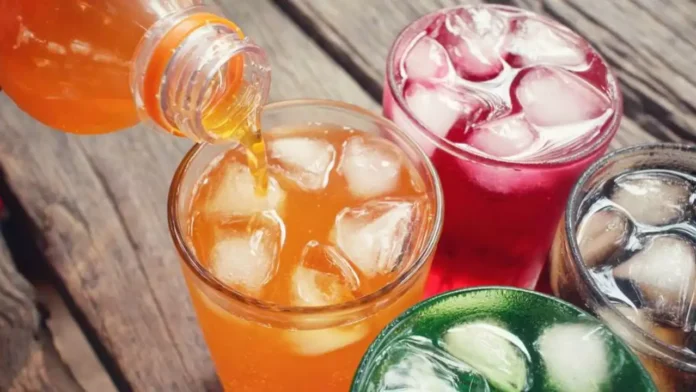A recent research study indicates that adults who consume two liters or more of artificially sweetened drinks per week may face a 20% higher risk of developing irregular heart rhythm, commonly referred to as atrial fibrillation.
The research, featured in this week’s issue of the American Heart Association journal Circulation: Arrhythmia and Electrophysiology, revealed a 10% rise in risk among those who reported consuming two liters or more per week of sugar-sweetened beverages.
It found that drinking one litre or less per week of pure, unsweetened juice – such as orange or vegetable juice – was associated with a lower risk of atrial fibrillation (AFib).
Scientists examined information from the UK Biobank, derived from dietary surveys and genetic information, covering over 200,000 adults who did not have AFib when they joined the Biobank. Over the nearly ten-year monitoring period, 9,362 cases of AFib were reported among the participants.
Continue Exploring: WHO urges global tax hike on alcohol and sugar-sweetened beverages
This study is one of the initial attempts to investigate the potential connection between sugar- or artificially-sweetened beverages and AFib. AFib, characterized by irregular heartbeats, significantly heightens the risk of stroke by five-fold.
Ningjian Wang, the lead researcher at the Shanghai Ninth People’s Hospital and Shanghai Jiao Tong University School of Medicine in Shanghai, China, pointed out that the study’s results do not definitively determine that one beverage carries a higher health risk than another, citing the complexity of consumers’ diets.
The observational nature of the study prevents it from establishing a causal relationship between the consumption of specific beverage types and the risk of AFib. It depended on participants’ recollection of their diets, which could introduce memory inaccuracies or biases. Additionally, it remains unclear whether the sugar- or artificially-sweetened beverages included caffeine.
Wang continued, “However, based on these findings, we recommend that people reduce or even avoid artificially sweetened and sugar-sweetened beverages whenever possible”.
The researchers also investigated whether genetic predisposition to AFib played a role in the connection with sweetened beverages. Their analysis revealed that the risk of AFib remained elevated with the consumption of more than two liters of artificially sweetened drinks per week, irrespective of genetic susceptibility.
Wang added, “Although the mechanisms linking sweetened beverages and atrial fibrillation risk are still unclear, there are several possible explanations, including insulin resistance and the body’s response to different sweeteners”.
Artificial sweeteners, including sucralose, aspartame, saccharin, and acesulfame, are commonly found in various low- and no-calorie soft drinks. A science advisory from the American Heart Association in 2018 highlighted the lack of substantial, long-term, and randomized trials concerning their effectiveness and safety.
Continue Exploring: WHO affirms safety of aspartame within recommended limits amidst controversy
CEO of natural energy drink brand Tenzing, Huib van Bockel, commented, “This latest research confirms what I’ve been following for years – that artificial sweeteners should never have been created as an alternative to sugar. In the same way that people tend to think vaping is better than smoking, the long-term effects are still unknown.”
American Heart Association nutrition committee member Penny M. Kris-Etherton described the new findings as surprising “given that two liters of artificially sweetened beverages a week is equivalent to about one 12oz diet soda a day.”
Tom Sanders, professor emeritus of Nutrition and Dietetics at King’s College London, said that it is “difficult to comprehend how artificially sweetened drinks could have such an effect, as the amounts of sweeteners are typically concentrations 300-800 times lower than sugar”.
He commented, “The main sweeteners used in drinks are aspartame, acesulfame K and sucralose. These molecules are pharmacologically inactive. It seems more likely that the selection of the artificially sweetened drinks is associated with another factor that increases risk of [AFib]. As this is the first study that has reported such an effect, the finding needs replication before any conclusions can be drawn.”
Sanders also added that it “remains good dietary advice” to recommend the consumption of low-calorie artificially-sweetened beverages in place of sugar-sweetened and alcoholic beverages.





